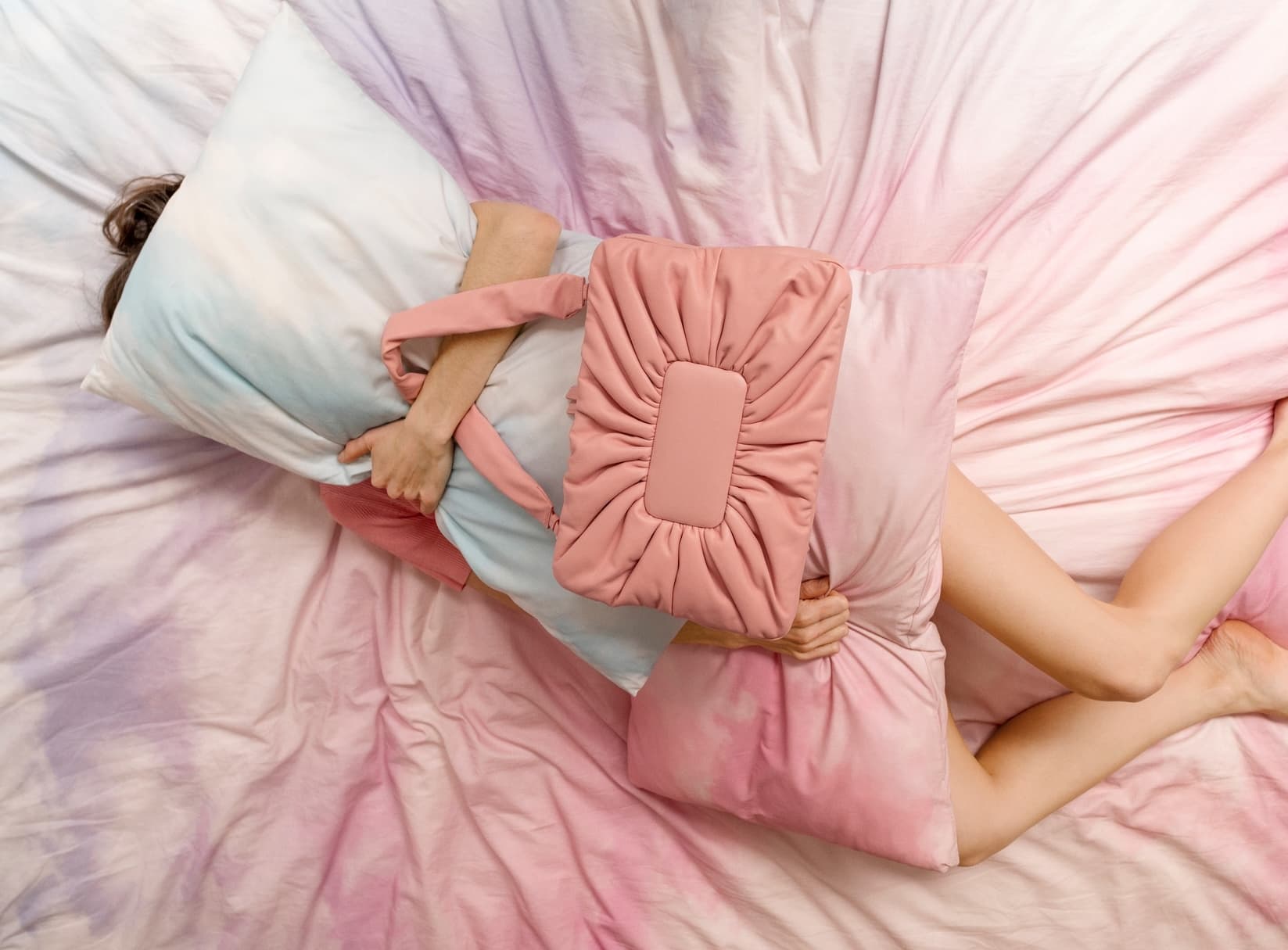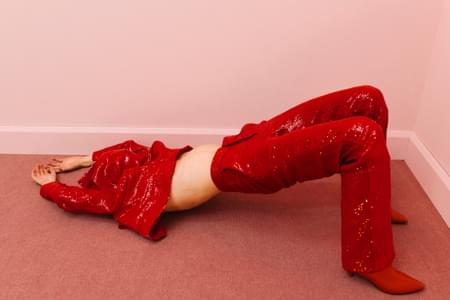This website will offer limited functionality in this browser. We only support the recent versions of major browsers like Chrome, Firefox, Safari, and Edge.

We all have that one friend who can fall asleep easily anytime, anywhere. Bright lights? Loud noises? Doesn’t matter – they’re out within minutes.
But not all of us are that lucky. In fact, according to the Centers for Disease Control and Prevention (CDC), around a third of adults report not getting enough sleep each night.
Now here’s the good news: Making some simple changes to your routine and sleep environment can have a drastic effect on your sleep. Keep reading for the best science-backed sleep hacks that you can implement today to help you fall asleep faster, sleep deeper, and feel more refreshed throughout the day.
Optimize Your Sleep Environment For R & R
Your bedroom should be an absolute sanctuary for sleep, free from distractions that interfere with getting those Zzz’s.
Here are some sleep hygiene tips to create an ideal space for rest:
Keep it cool. According to the National Sleep Foundation, keeping your bedroom temperature between 60-67°F is best for promoting sleep.
Limit noise. Silence distractions with earplugs, a white noise machine, or a fan.
Block out light. Put up dark curtains or a blackout shade to eliminate light shining in through your windows – and ensure there’s no light coming from digital devices in your room that can disrupt your body’s melatonin production.
Invest in a comfortable mattress and pillows. Your back will thank you later! Research shows that a medium-firm mattress is a solid choice for sleep and reduced back pain.
Only use your bed for sleep and sex. Getting in bed should send a cue to your brain that it’s time to rest, so try to avoid working or watching TV while lying in bed.
Create A Calming Nighttime Routine
A relaxing bedtime routine signals your body to wind down. Try incorporating these calming habits before heading to bed:
Use aromatherapy with essential oils like lavender to promote relaxation.
Do a meditation, a gentle nighttime yoga class, or deep breathing exercises.
Take a warm bath.
Read a book or listen to calming music.
Avoid Late-Night Eating and Drinking
Eating and drinking too close to bedtime can harm sleep quality. Large meals before bed cause indigestion, and drinking too many fluids can make you wake up in the middle of the night to pee, disrupting your sleep. It’s a good idea to go to the bathroom right before you go to sleep to prevent 3 am pee breaks.
Get Morning Sunlight for Better Sleep
One of the best ways to improve your sleep, energy, mood, and wakefulness in the day is to get natural light in your eyes soon after waking up (within 30 to 60 minutes).
Research shows that morning sun exposure helps regulate circadian rhythms by suppressing melatonin production early in the day, keeping you alert and energized. Plus, new evidence from 2024 published in the Journal of Health Psychology demonstrates that people who get morning sunlight experience higher-quality sleep that night. This is true regardless of how much sunlight you get throughout the day, scientists found.
Limit Alcohol And Caffeine
While having wine in the evening might initially make you feel sleepy, alcohol disrupts sleep cycles and decreases melatonin production.
To promote more restful sleep, try to avoid drinking alcohol too close to bedtime on most nights.
It’s also a good idea to cut the caffeine at least 8 hours before bed, because it stays in your system for quite a while and can make you feel more alert even when you’re trying to wind down.
Reduce Blue Light Exposure Before Bed
Your phone, computer, and TV emit blue light, which interferes with your body’s natural ability to produce melatonin (the sleep hormone).
Here are a few strategies to reduce blue light in the evenings so you can fall asleep more easily:
If you need to use screens at night, try getting glasses with a blue light filter.
Install a blue light filtering app on devices that makes your screen warmer at night (try the app f.lux).
As much as possible, avoid screens and dim the lights in your room two hours before bed.
Put your phone on ‘Do Not Disturb’ mode to prevent late-night notifications. You may even consider making your bedroom a ‘no phone zone’ – keeping your smartphone in another room while you wind down and sleep.
Exercise, But Only At The Right Time
Getting regular exercise is fantastic for sleep (aim for 150 minutes of activity per week), but timing matters. Working out too late at night can raise adrenaline and keep you wired when you should be winding down.
It’s best to finish your workout at least three hours before bedtime to prevent sleep disruptions. If you want some movement at night, try something more calming like yoga or stretching.
Try Natural Sleep Remedies
If you’re having trouble getting to sleep, you can speak to your doctor about incorporating a natural supplement into your bedtime routine.
Taking a low-dose melatonin supplement 30 minutes before bed may help you fall asleep. The research is still unclear on the effects of melatonin on sleep quality and total sleep time, and it is only intended for short-term use.
Magnesium can help you sleep longer, improve sleep quality, and feel more awake during the day. Besides supplements, you can find magnesium in foods like nuts, leafy greens, whole grains, dairy, and soy products.
Stick to a Consistent Sleep Schedule
Going to bed and waking up at the same time daily helps regulate your internal clock, making it easier to fall and stay asleep. A 2020 systematic review found that going to bed late and varying the sleep routine were associated with poorer health outcomes.
So as best you can, aim for a regular bedtime and wake-up time (yes, even on weekends).
Try The 4-7-8 Breathing Technique To Relax
Deep breathing can be really effective in lowering stress levels and promoting sleep. If you find yourself lying in bed with racing thoughts and unable to quiet your mind, this simple breathing technique can instantly make you feel more relaxed.
Here’s how it works:
- Exhale completely through your mouth.
- Inhale through your nose for four seconds.
- Hold your breath for seven seconds.
- Exhale slowly for eight seconds.
This rhythmic breathing pattern activates your body’s relaxation response and reduces stress, so you can drift off to dreamland.
If Sleep Isn’t Coming, Don’t Force It
If you’ve been lying awake for more than 20 minutes and sleep just isn’t coming, it’s easy to get frustrated and get lost in thoughts, which of course doesn’t help with getting to sleep! There are some nights when our bodies need a little extra support to wind down.
So instead of staring at the ceiling waiting for sleep to come, here’s what you can do: Get out of bed and do a relaxing activity like reading or stretching (but not an exciting book like a crime thriller that’ll make you feel more awake.)
You can also try a guided meditation, the 4-7-8 breathing technique mentioned above, or listen to soothing sounds to reset your mind and let sleep come naturally.
Where To Turn For Support
If you’re experiencing more than just occasional trouble sleeping, here’s what you can do:
Speak to a healthcare professional: Tell your doctor what you’re going through so they can look for potential underlying causes. Your healthcare provider may recommend tracking your sleep patterns in a journal.
Try a sleep study: A sleep study is a diagnostic test used to evaluate sleep disorders by monitoring brain waves, heart rate and breathing, and eye and leg movements while you sleep. These are done in sleep centers or hospitals and are an important part of understanding long term sleep disturbances.
Look for other causes of sleep disruption: Many factors can impact sleep. If you’re experiencing anxiety or are going through menopause, it’s common to have trouble sleeping. Make sure to tell your healthcare provider about any other symptoms you have so they can best support you.
Consider prescription medications or other treatments: Several prescription medications are available to treat insomnia and other sleep disorders. In addition to medications, Cognitive Behavioral Therapy (CBT) is a proven method to combat both short-term and chronic sleep issues.
Takeaway
When it comes to sleep problems, there’s often no silver bullet. Try incorporating several of these science-backed strategies into your daily routine to help your body get the rest it needs so you can feel your best. You may be surprised at just how big of a change making these small tweaks to your sleep environment, nighttime routine, and daily habits can have.
If your sleep troubles persist, don’t hesitate to reach out to a healthcare professional to find the best path forward.
Looking for more expert-created content on sleep? Download the Rosy app and check out Quickies – a completely free resource where you can explore short videos made by women’s healthcare professionals. With a paid plan, you’ll also get access to personalized Wellness Plans, guided meditations, workouts, and so much more.
Sources
Centers for Disease Control and Prevention. “FastStats: Sleep in Adults.” Centers for Disease Control and Prevention, 15 May 2024, https://www.cdc.gov/sleep/data-research/facts-stats/adults-sleep-facts-and-stats.html.
Caggiari, Gianfilippo, et al. “What Type of Mattress Should Be Chosen to Avoid Back Pain and Improve Sleep Quality? Review of the Literature.” Journal of Orthopaedics and Traumatology, vol. 22, no. 1, 2021, p. 51.
“8 Secrets to a Good Night’s Sleep.” Harvard Health Publishing, 20 Nov. 2023, https://www.health.harvard.edu/newsletter_article/8-secrets-to-a-good-nights-sleep.
National Sleep Foundation. “Sleep by the Numbers.” National Sleep Foundation, 12 May 2021, https://www.thensf.org/sleep-facts-and-statistics/.
“Sleep Tips.” National Sleep Foundation, 2025, https://www.thensf.org/sleep-tips/.
Barger, Shelby D., et al. “Does Sunlight Exposure Predict Next-Night Sleep? A Daily Diary Study Among U.S. Adults.” Journal of Health Psychology, 2024, https://doi.org/10.1177/13591053241262643.
Chung, Nikola, et al. “Does the Proximity of Meals to Bedtime Influence the Sleep of Young Adults? A Cross-Sectional Survey of University Students.” International Journal of Environmental Research and Public Health, vol. 17, no. 8, 2020, p. 2677, https://doi.org/10.3390/ijerph17082677.
Blume, Christine, et al. “Effects of Light on Human Circadian Rhythms, Sleep and Mood.” Somnologie, vol. 23, no. 3, 2019, pp. 147–156. PubMed Central, https://pmc.ncbi.nlm.nih.gov/articles/PMC6751071/.
Chaput, Jean-Philippe, et al. “Sleep Timing, Sleep Consistency, and Health in Adults: A Systematic Review.” Applied Physiology, Nutrition, and Metabolism, vol. 45, no. 10 Suppl. 2, 15 Oct. 2020, https://cdnsciencepub.com/doi/full/10.1139/apnm-2020-0032.
Bentley, Tanya G. K., et al. “Breathing Practices for Stress and Anxiety Reduction: Conceptual Framework of Implementation Guidelines Based on a Systematic Review of the Published Literature.” Brain Sciences, vol. 13, no. 12, 2023, article 1612, https://doi.org/10.3390/brainsci13121612.
National Sleep Foundation. “Cognitive Behavioral Therapy for Insomnia (CBT-I).” Sleep Foundation, 2024, https://www.sleepfoundation.org/insomnia/treatment/cognitive-behavioral-therapy-insomnia. Accessed 23 Feb. 2025.
National Sleep Foundation. “Melatonin: What You Need to Know.” Sleep Foundation, 2024, https://www.sleepfoundation.org/melatonin. Accessed 23 Feb. 2025.
Mayo Clinic Staff. “Melatonin.” Mayo Clinic, 3 Nov. 2023, https://www.mayoclinic.org/drugs-supplements-melatonin/art-20363071. Accessed 23 Feb. 2025.
National Sleep Foundation. “Magnesium and Sleep.” Sleep Foundation, 2024, https://www.sleepfoundation.org/magnesium. Accessed 23 Feb. 2025.
Latest On XOXO Blog

Foods That Love Your Heart Back: A Dietary Guide to Cardiovascular Wellness
What you eat every day has the power to strengthen your heart—or strain it. Here’s how to make every bite count.

Stress vs. Burnout: How to Spot the Difference and Recover
Feeling constantly exhausted, unmotivated, and overwhelmed? You might be dealing with more than just stress—burnout could be the culprit.


